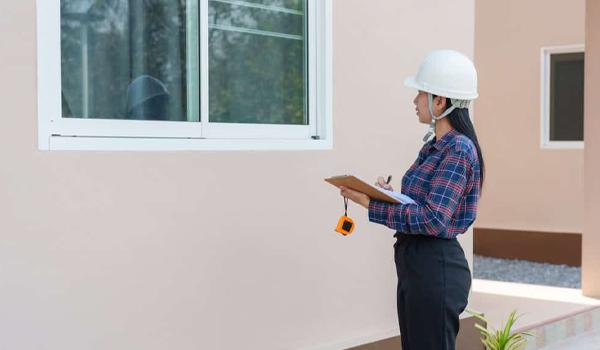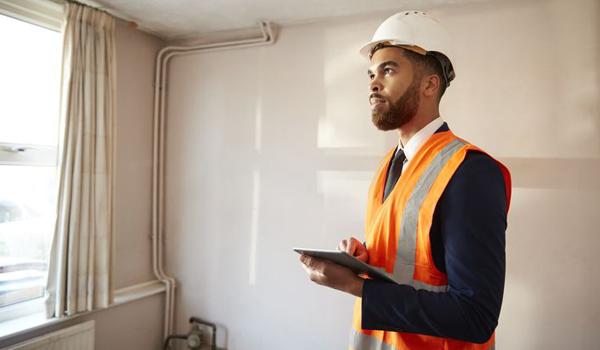Home Inspection Contingency: A Buyer's Guide

When the market is competitive, it seems that home inspection contingency is risky, something that slows down the offer. While in fact, it ensures your new home isn’t a financial black hole.
Keep reading to find out all about inspection contingencies, how they work, why they’re important, whether it’s possible to waive them and what are its risks.
What Is Home Inspection Contingency?
A home inspection contingency or a “due diligence contingency,” is a clause in the home purchase agreement (existing or newly built) that makes the sale dependent on the results of a home inspection.
There are other types of contingencies in real estate contracts such as financing, appraisal, sale of current home, and title contingency too; with this one dedicated to protecting buyers against unexpected issues.
How Does Home Inspection Contingency Work?
This clause allows the buyer to have the property inspected within a specific timeframe. If the inspection reveals major issues, they can request repairs, negotiate a lower price, or withdraw from the deal. It also gives the seller some time (7-10 days) to find common ground with the buyer, or object to the inspection’s findings.
The contingency details, such as the inspection timeframes and deadlines, acceptable repairs, and unacceptable issues (walk away clause) need to be defined clearly in the agreement; and the buyer should follow them exactly for successful claims.
Why is Home Inspection Contingency Important?
It offers protection and negotiating power for buyers, ensuring they are aware of the home’s condition before closing the deal. And for sellers, although it brings uncertainty to the table but can also highlight the property's strengths if no serious issues are detected.
Is It Possible to Waive a Home Inspection Contingency?
While there are no rules against removing the contingency, it’s advisable for protecting buyers. However, there are unique circumstances where you might want to waive this type of contingency.
In a seller’s market, a lot of buyers skip this clause to close the deal faster, but there are risks involved: you won’t have a detailed report to use as leverage when negotiating for repairs, credit for repairs, or lowering the price. Therefore, any repairs and their payments will be your responsibility.
Alternatives to Waiving the Inspection Contingency
If you don’t want to take the standard route (and add a home inspection contingency clause), you can still have the property inspected. This way you can negotiate with the seller beforehand and let them know about repairs that you are willing to ignore.
If you can’t reach an agreement, you can give the notice and walk away from the deal. The deposit might be lost, but addressing and paying for little to major issues won’t rob you of your peace and pocket.
If you find yourself in a competitive market and don’t want to skip this contingency, you could offer paying a certain amount above the appraised value or paying the closing costs, such as real estate agent commission as incentives.
Also, check out this video to learn about avoiding mistakes in inspection contingency.
What Happens if Inspection Contingency Expires?
If the inspection contingency expires, you won’t be able to use this clause to withdraw from the deal without penalties. This way, the seller can keep the earnest money deposit.
This is why timeframes and deadlines are so important in contingency clauses. Always respond immediately, and don’t assume there’s more than enough time for scheduling the inspection, receiving and reviewing the report, finalizing your decision, contacting the seller, etc.
Frequently Asked Questions
What if the inspection reveals major problems?
If a home inspection reveals major problems, the buyer can negotiate for repairs before closing, request credit to cover the repair costs, ask for a lower price, or withdraw from the deal if the problems are severe.
What happens if the seller refuses repairs?
The buyer can cancel the purchase agreement and take their deposit back.
Can I back out of the deal after the inspection?
The buyer’s right to withdraw depends on a specific timeframe outlined in the contract (to give the notice). As long as you stick to it, you’ll be able to claim this right successfully.
What is the timeline for a home inspection contingency?
It is very short, typically 3-7 business days.
How do I write a contingency clause?
Clearly state each condition, how it’s fulfilled, and who’s responsible for fulfilling it. The clause must also specify a deadline and the consequences of non-compliance. You might also want to seek professional help.
Conclusion
A home inspection contingency isn’t about distrust, it’s about due diligence. Buying a home is likely your largest financial investment, and this clause is necessary to reveal potential problems before you are legally bound to the purchase.
Don’t know reputable inspectors? Submit your request at Houmse for a detailed list of inspectors in your region along with their expertise, time in the field, client reviews, and more, allowing you to verify their qualifications before hiring.
- In this post:
- What Is Home Inspection Contingency?
- How Does Home Inspection Contingency Work?
- Why is Home Inspection Contingency Important?
- Is It Possible to Waive a Home Inspection Contingency?
- What Happens if Inspection Contingency Expires?
- Frequently Asked Questions
- Conclusion



